
My Tribute to Summer Days
by Stella Villalba
Summer Days
Please don't come to an end
You feel so good in my hands
Love to have you by myside
Love to know you mean late nights
Summer Days
I enjoy you, oh! so much
waking up any time I want
feeling lazy, feeling energized
Love to know I got so much done!
Summer Days
You help me get caught up
in so much summer reading fun
you were to witness of all those nights
Love to know I grew so much
Summer Days
It's Ok, I should let you go
and feel grateful I had you at all
You make new memories for me
and unforgettable moments that will stay
right
here
with
me.

Here is my book finding for this week and I couldn't be more excited! Countdown to Summer: A Poem for Every Day of the School Year by J. Patrick Lewis is a wonderful new addition to my personal library. You're reading the title of the book and you are probably thinking Countdown to Summer? But we're almost finishing summer! This book is the perfect book to start the school year. Imagine having at your fingertips a poem for each day of the school year? Yes, I think what J. Patrick Lewis did is very creative as well! The first poem in the book is numbered 180 and so the countdown begins. Ethan Long created the illustrations that paired each poem perfectly. You will find in this book limericks, haikus, riddles and shape poems! Some of my favorite poems include poem # 130 American Autumn, # 98 A Monthly Calendar, and of course # 1 School's Out! I believe this p0etry book is a great companion for students in grades 3 and up.
Would you like to know where to go next? Head to Poetry for Children where Sylvia Vardell is compiling all the round ups for this week!

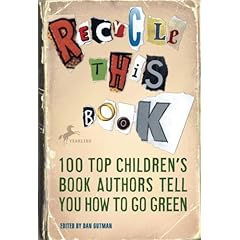
 I loved finding this book at our wonderful Columbus Metropolitan Library. Change-up Baseball poems by Gene Fehler and illustrated by Donald Wu. There are so many boys in my classroom who will be so thrill when I share this book with them. The author Gene Fehler was called "the Shell Silverstein of baseball by The Sporting News. He is a true baseball fan and only someone who feels the passion for this sport can truly write about the excitement and thrill of this sport. I really like how Gene Fehler's first poem in this book starts a poem during the winter season, when the baseball field is nothing but a blanket of snow. And that's how this book ends as well, in winter time when a child contemplates the field and cannot wait till spring start. I am sure you will enjoy Gene Fehler's poems from winnings, loses, superstitions, cheering, to teammates, and field. It is a book to be enjoyed many times over.
I loved finding this book at our wonderful Columbus Metropolitan Library. Change-up Baseball poems by Gene Fehler and illustrated by Donald Wu. There are so many boys in my classroom who will be so thrill when I share this book with them. The author Gene Fehler was called "the Shell Silverstein of baseball by The Sporting News. He is a true baseball fan and only someone who feels the passion for this sport can truly write about the excitement and thrill of this sport. I really like how Gene Fehler's first poem in this book starts a poem during the winter season, when the baseball field is nothing but a blanket of snow. And that's how this book ends as well, in winter time when a child contemplates the field and cannot wait till spring start. I am sure you will enjoy Gene Fehler's poems from winnings, loses, superstitions, cheering, to teammates, and field. It is a book to be enjoyed many times over. Another great summer finding:
Another great summer finding: 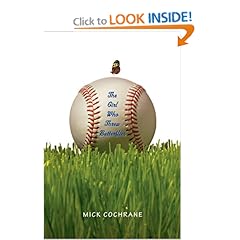 The Girl Who Threw Butterflies by Mick Cochrane is the story of Molly Wiliams, an 8th grader whose father has just died in a car accident. As a middle school girl, the last thing she wants is for the other students to look at her with pity or remember her for what happened to her instead of for who she is. In the meantime, things at home are not easy to handle either. Molly's mom is dealing with her husband's death by closing herself, keeping it quiet and distant instead of reaching out to Molly. Molly and her dad shared a common love for baseball. It is one of the memories that Molly wants to hold on to the most. It was the string that attach her and her dad. Her afternoons used to be filled with playing ball with her dad, of batting, and green fields. Molly's dad taught her how to throw a knuckleball and it made Molly strong and confident. Confident enough to decide to join the baseball team, the boys baseball team at her school. And with this decisions, comes a string of events that will define Molly at such a young age. One of the things I truly enjoyed about this book is the powerful language Mick Cochrane uses to describe some of Molly's deepest feelings. For example: on page 71 it says,
The Girl Who Threw Butterflies by Mick Cochrane is the story of Molly Wiliams, an 8th grader whose father has just died in a car accident. As a middle school girl, the last thing she wants is for the other students to look at her with pity or remember her for what happened to her instead of for who she is. In the meantime, things at home are not easy to handle either. Molly's mom is dealing with her husband's death by closing herself, keeping it quiet and distant instead of reaching out to Molly. Molly and her dad shared a common love for baseball. It is one of the memories that Molly wants to hold on to the most. It was the string that attach her and her dad. Her afternoons used to be filled with playing ball with her dad, of batting, and green fields. Molly's dad taught her how to throw a knuckleball and it made Molly strong and confident. Confident enough to decide to join the baseball team, the boys baseball team at her school. And with this decisions, comes a string of events that will define Molly at such a young age. One of the things I truly enjoyed about this book is the powerful language Mick Cochrane uses to describe some of Molly's deepest feelings. For example: on page 71 it says, One of the hardest things to teach young ELLs is rhyming words. Imagine when you are learning a new language to be asked to think of words that rhymes with a particular sound, you will have to have a pretty strong command of the target language in order to acquire such a high level of understanding and production. Please do not misunderstand me, ELLs CAN learn and produce rhyming words, it just takes them more time, more practice, more repetition. Well, I found a great book at our wonderful
One of the hardest things to teach young ELLs is rhyming words. Imagine when you are learning a new language to be asked to think of words that rhymes with a particular sound, you will have to have a pretty strong command of the target language in order to acquire such a high level of understanding and production. Please do not misunderstand me, ELLs CAN learn and produce rhyming words, it just takes them more time, more practice, more repetition. Well, I found a great book at our wonderful 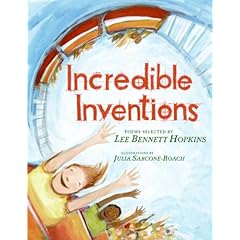
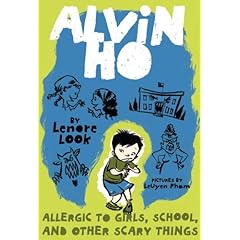
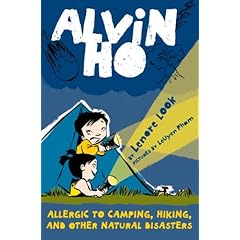

 in my life and now I am back. There is a time in everyone's life where you may need to pause, step back, reflect and refocus. I do struggle sometimes with the fast pace of life in the United States so pressing the reset button works for me. So what does this mean?
in my life and now I am back. There is a time in everyone's life where you may need to pause, step back, reflect and refocus. I do struggle sometimes with the fast pace of life in the United States so pressing the reset button works for me. So what does this mean? 
 One of the books that traveled with me was Umbrella Summer by Linda Graff. Instead of spending too much time writing about this book, I'd like to invite you to head over
One of the books that traveled with me was Umbrella Summer by Linda Graff. Instead of spending too much time writing about this book, I'd like to invite you to head over 
 There are so many reasons I LOVE LOVE this book. Through this book, I get the chance as a teacher to teach them in a FUN way about question marks, exclamation points, proper intonation, inferring, acting and interpretation through body language. The child
There are so many reasons I LOVE LOVE this book. Through this book, I get the chance as a teacher to teach them in a FUN way about question marks, exclamation points, proper intonation, inferring, acting and interpretation through body language. The child